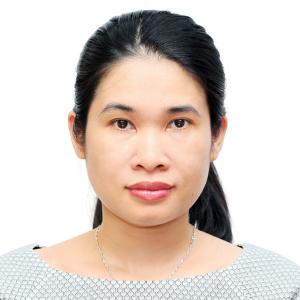On World Day against Trafficking in Persons, far more still needs to be done to help victims and end impunity for criminals
30 tháng 7 2015
- Vienna, 30 July 2015– Each year millions of women, men and children are trafficked for profit. They are sexually exploited, made to undertake demanding and often dangerous work in homes, farms and factories across the globe, and find themselves victims of one of the many other forms of abuse such as forced marriage or organ removal. Yet despite the wide-spread recognition that this is one of today's most exploitative crimes, action is lacking: more needs to be done to dismantle the organized criminal networks behind this, while at the same time it is critical that assistance to victims be stepped up.
Against this background, and with the second annual World Day against Trafficking in Persons being marked today, the United Nations Office on Drugs and Crime (UNODC) is calling for definitive and marked action to both end the impunity of traffickers, and to drastically scale-up the much needed support being provided to victims.
UNODC's most recent biennial Global Report on Trafficking in Persons highlights the true extent of the crime: with at least 152 countries of origin and 124 countries of destination affected by trafficking in persons, and over 510 trafficking flows crisscrossing the world, no country is immune. Coupled with this, society's most vulnerable appear to be ever-more targeted by those responsible for this crime: a full 33 per cent of known victims of trafficking are children, a five point increase compared to the 2007-2010 period. With girls making up two out of every three child victims, together with women, they now account for 70 per cent of trafficked persons worldwide.
The Protocol to Prevent, Suppress and Punish Trafficking in Persons, especially Women and Children, under the United Nations Convention against Transnational Organized Crime, which came into force a decade ago represents a major step towards tackling this crime. For the first time, this international instrument called for all acts of human trafficking to be criminalized, including trafficking for sexual exploitation, forced labour, organ removal, domestic servitude and other similar practices.
Yet despite this and other encouraging progress, legislation in some countries still does not always comply with the Protocol and fails to cover all forms of trafficking and their victims, leaving billions of people inadequately protected and vulnerable. In some areas this has resulted in extremely low levels of action against traffickers. Within the period covered by the latest Global Report, some 40 per cent of countries reported less than ten convictions per year, while 15 per cent did not record a single conviction. "This illustrates a level of impunity which is unacceptable and highlights the fact that, at the moment, the traffickers are getting away with their crimes", said Yury Fedotov, UNODC Executive Director. "The world is facing many grave challenges, and our resources are strained. But we cannot allow unscrupulous criminals to exploit these crises and take advantage of desperation and suffering."
Juxtaposed against the need for heightened action against criminals, there is an equal urgency to provide support services to those directly affected by traffickers.
Speaking on this, Secretary-General Ban Ki-moon in his statement for the World Day urged support for the United Nations Voluntary Trust Fund for Victims of Trafficking in Persons: a mechanism which works with NGO partners across the globe to help survivors of this crime, providing shelter, basic health services, vocational training and schooling, as well as psychosocial, legal and economic support. "We must also provide meaningful assistance to those in need, including protection and access to justice and remedies. I applaud the donors who have enabled the United Nations Voluntary Trust Fund for Victims of Trafficking in Persons Fund to assist thousands of people. At the same time, I urge greater contributions to help the many millions of other victims of this crime move forward with their lives."
As part of UNODC's public outreach for the World Day, the Office coordinates the global campaign #igivehope which aims to raise awareness around the plight of survivors of trafficking in persons. More on this can be found at www.endht.org.
For further information, please contact:
- Kevin Town, Public Information Officer, UNODC, email: kevin.town@unodc.org
- Carlos Gomez del Campo, Associate Public Information Officer, UNODC, email: carlos.gomezdelcampo@unodc.org

Bà Nguyễn Nguyệt Minh có bằng Thạc sỹ về Chính trị và Chính sách và Thạc sỹ về Nghiên cứu phát triển (tốt nghiệp loại xuất sắc) của Trường Đại học Katholieke Universiteit Leuven (Vương quốc Bỉ), Cử nhân Quan hệ quốc tế của Học viện Quan hệ Quốc tế và Cử nhân Luật của Trường Đại học Luật Hà Nội (Việt Nam).



